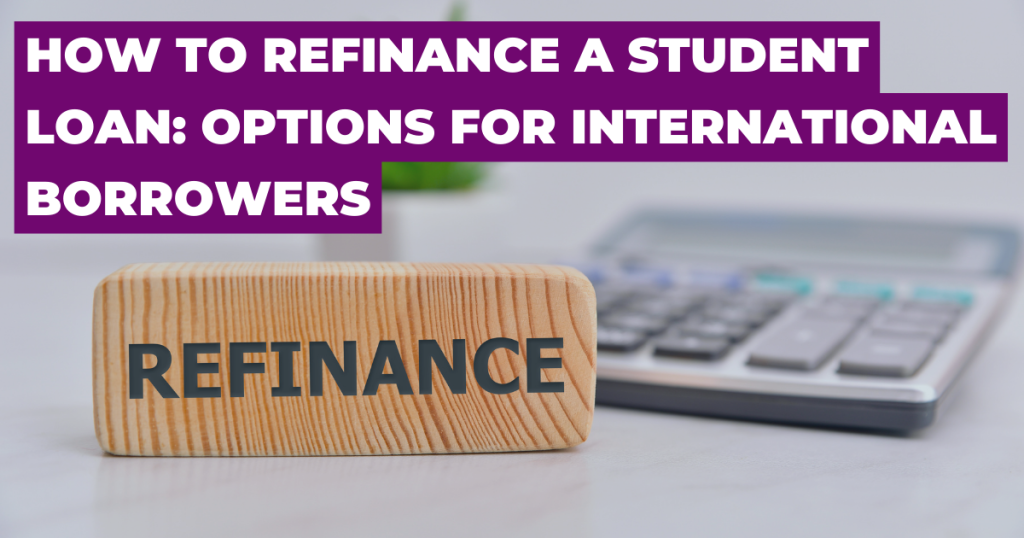What are 3 Common Types of Private Student Loans? : Unlocking Your Financial Future
There are three common types of private student loans: federal student loans, private student loans from banks or financial institutions, and school-issued student loans. Private student loans are a popular choice for students who need additional funds to cover their education expenses beyond what federal student loans offer.
These loans can help cover tuition fees, books, housing, and other miscellaneous costs. However, it’s important to carefully consider the terms and conditions, interest rates, and repayment options before applying for a private student loan to ensure it aligns with your financial goals and capabilities.
With the right research and understanding, private student loans can be a valuable resource for financing higher education.

Credit: www.equifax.com
The Basics Of Private Student Loans
Private student loans are a financing option available to students who need additional funds to cover their educational expenses. Unlike federal student loans, which are offered by the government, private student loans are provided by banks, credit unions, or other lending institutions. These loans can be used to pay for tuition fees, textbooks, housing, and other education-related costs. In this section, we will discuss the three common types of private student loans.
Fixed Interest Rate Loans
One common type of private student loan is a fixed interest rate loan. With this type of loan, the interest rate remains constant throughout the repayment period. This means that your monthly payments will also remain the same, making it easier to budget and plan for the future. Fixed interest rate loans provide stability and predictability, as you know exactly how much you need to repay each month. These loans are a good choice if you prefer a steady and consistent repayment plan.
Variable Interest Rate Loans
Another type of private student loan is a variable interest rate loan. Unlike fixed interest rate loans, the interest rate on these loans can change over time. The interest rate is generally tied to an index, such as the prime rate or the LIBOR rate, which fluctuates based on market conditions. This means that your monthly payments can vary from month to month. While variable interest rate loans may initially offer lower interest rates, they also come with the risk of potential increases in interest rates. If you are comfortable with taking some degree of uncertainty in exchange for possible savings, a variable interest rate loan might be the right choice for you.
Cosigned Loans
A cosigned loan is a private student loan that requires a cosigner. A cosigner is typically a parent, guardian, or another creditworthy individual who agrees to take on the responsibility of repaying the loan if the borrower is unable to do so. Cosigners can help borrowers qualify for loans with better interest rates and terms, especially if the borrower has little to no credit history. This type of loan can be beneficial for students who are unable to meet the eligibility requirements on their own.
| Type of Loan | Interest Rate | Repayment Stability | Cosigner Requirement |
|---|---|---|---|
| Fixed Interest Rate Loans | Fixed | Stable monthly payments | May not require a cosigner |
| Variable Interest Rate Loans | Variable | Monthly payments may change | May not require a cosigner |
| Cosigned Loans | Varies | Stable monthly payments | Requires a cosigner |
:max_bytes(150000):strip_icc()/Venturecapital-2f7ba3a27d0545f682a6238ea6b16cb9.png)
Credit: www.investopedia.com
Comparing The Different Types
When it comes to choosing a private student loan, it’s crucial to understand the key differences between the various options available. By comparing the interest rate structure, credit and income requirements, and flexibility in repayment, you can make an informed decision that aligns with your financial goals and circumstances.
Interest Rate Structure
The interest rate structure of a private student loan determines how the interest is calculated and applied to your loan balance. There are three common types of interest rate structures:
- Fixed Interest Rate: With a fixed interest rate, your rate remains the same throughout the life of your loan. This provides stability and predictability, as your monthly payments will not change. It’s important to note that fixed interest rates may be higher initially, but they protect you from potential rate increases in the future.
- Variable Interest Rate: In contrast, a variable interest rate fluctuates with market conditions. While variable rates may start lower than fixed rates, they can rise over time, potentially increasing your monthly payments. Variable interest rates are influenced by factors such as the economy, financial markets, and the benchmark index they are tied to.
- Hybrid Interest Rate: Some lenders offer hybrid interest rate structures that combine elements of both fixed and variable rates. For example, your loan may have a fixed rate for the first few years, then transition to a variable rate after a specified period. This can provide an initial period of stability followed by potential savings if interest rates decrease.
Credit And Income Requirements
Your credit history and income play a significant role in determining your eligibility for private student loans. Lenders assess your creditworthiness to evaluate the risk of lending you money. The credit and income requirements for private student loans can vary, but they generally include:
- Credit Score: Lenders may have minimum credit score requirements, typically ranging from fair to excellent credit. A higher credit score generally improves your chances of approval and may result in more favorable interest rates.
- Income Verification: Lenders may require proof of income to ensure you have the means to repay your loan. This can include pay stubs, tax returns, or bank statements. If you have limited or no income, you may need a cosigner with a stable income to increase your chances of approval.
Flexibility In Repayment
The flexibility in repayment options is an essential factor to consider when choosing a private student loan. Different lenders offer varying terms and benefits to accommodate your financial circumstances. Some aspects to consider include:
- Grace Period: A grace period is a period of time after graduation or leaving school when you are not required to make payments. Some loans offer longer grace periods, giving you more time to secure employment and establish a steady income.
- Deferment and Forbearance Options: Deferment and forbearance options allow you to temporarily pause or reduce your loan payments under certain circumstances, such as economic hardship, unemployment, or returning to school for further education.
- Repayment Plans: Private student loans may offer different repayment plans, such as standard repayment, graduated repayment, or income-driven repayment. Each plan has its own features, including fixed or variable payments, extended terms, and potential interest rate discounts.
Understanding The Pros And Cons
When it comes to private student loans, understanding the pros and cons of each type is crucial for making informed decisions. Let’s delve into the common types of private student loans and explore their advantages and disadvantages.
Pros Of Fixed Interest Rate Loans
A fixed interest rate loan offers stability and predictability as the interest rate remains constant throughout the loan term. This means that borrowers can budget more effectively as their monthly payments remain consistent.
Cons Of Variable Interest Rate Loans
Variable interest rate loans can offer initial lower rates, but they are subject to fluctuation based on market conditions. This type of loan brings the risk of increasing monthly payments, making it challenging for borrowers to plan their finances effectively.
Advantages Of Cosigned Loans
Cosigned loans can benefit students with limited credit history or income. By having a cosigner, such as a parent or guardian, applicants may qualify for lower interest rates and higher loan amounts, increasing their chances of approval. However, it’s important to note that the cosigner is equally responsible for the loan and their credit could be impacted if payments are missed.
Selecting The Right Private Student Loan
When selecting the right private student loan, it’s important to be aware of the three common types available. These include fixed-rate loans, variable-rate loans, and co-signed loans. Fixed-rate loans offer predictable payments, while variable-rate loans may fluctuate with the market.
Co-signed loans require a creditworthy co-borrower to secure the loan.
Assessing Your Financial Situation
Before taking out a private student loan, it is crucial to carefully assess your financial situation. You need to have a clear understanding of your income, expenses, and existing debt. Consider the total amount of money you will need to borrow for your education and compare it to your anticipated future earnings in your chosen field. Determining how much you can afford to borrow and repay each month is key in selecting the right private student loan. Use an online budgeting tool or consult with a financial advisor for assistance in evaluating your financial situation.
Researching Lenders And Loan Terms
Once you have a clear understanding of your financial situation, it’s time to start researching lenders and loan terms. Compare interest rates, repayment options, and loan terms offered by various private lenders. Look for lenders who offer competitive rates, flexible repayment plans, and favorable loan terms. Additionally, pay close attention to any fees associated with the loan, such as origination fees or prepayment penalties. Thoroughly researching and comparing different lenders and loan terms will help you find the most suitable private student loan for your needs.
Considering Co-signers
Considering a co-signer is another important aspect of selecting the right private student loan. A co-signer is someone who agrees to share the responsibility of repaying the loan with you. If you have a limited credit history or a low income, having a co-signer with a strong credit history can increase your chances of getting approved for a loan with more favorable terms and a lower interest rate. However, it is crucial to discuss the responsibility, expectations, and potential risks involved with your potential co-signer before proceeding.
Maximizing Your Financial Future With Private Student Loans
Maximize your financial future with private student loans by exploring three common types of options: fixed-interest loans, variable-interest loans, and cosigned loans. These loans offer flexibility and tailored solutions to help you achieve your educational goals and pave the way for a successful future.
Using Private Loans Responsibly
Private student loans can be a valuable resource for funding your education, but it’s essential to use them responsibly to avoid overwhelming debt in the future. By following these key guidelines, you can make the most of your private student loans:
- Only borrow what you need: Before taking out a private student loan, carefully assess your financial situation and determine the exact amount you need for tuition, books, and living expenses. Avoid the temptation to borrow more than necessary, as it may lead to unnecessary debt burden.
- Do thorough research: Before settling for a particular lender, it’s crucial to shop around and compare different loan options. Look for lenders offering competitive interest rates, flexible repayment options, and favorable terms. Understanding the fine print will ensure you make an informed decision.
- Create a budget: Once you secure a private student loan, it’s essential to create a budget to keep your spending in check. By tracking your expenses, you can ensure that you allocate sufficient funds towards loan repayment without compromising your basic needs.
- Stay informed: Familiarize yourself with the terms and conditions of your loan, including interest rates, repayment period, and any potential penalties or fees. Regularly review your loan status and be proactive in communicating with your lender if you face any financial challenges.
Exploring Loan Repayment Strategies
Repaying your private student loans can initially seem overwhelming, but implementing effective repayment strategies can alleviate financial stress. Here are some strategies to consider:
- Make timely payments: Prompt repayment is crucial to avoid late fees and penalties. Set reminders or automatic payments to ensure you never miss a payment deadline.
- Prioritize high-interest loans: If you have multiple loans, focus on paying off the loans with the highest interest rates first. By prioritizing these loans, you can save money on interest payments in the long run.
- Consider refinancing: Refinancing allows you to consolidate your loans into a single loan with a potentially lower interest rate. This can simplify your repayment process and potentially save you money over time.
- Explore alternative repayment plans: Some lenders offer flexible repayment plans, such as income-driven repayment or graduated repayment plans. These options adjust your monthly payments based on your income, making it easier to manage your student loan debt.
Planning For Loan Forgiveness Programs
If you face financial challenges and find it difficult to repay your private student loans, exploring loan forgiveness programs can provide relief. Here are a few programs to consider:
| Program | Eligibility Criteria | Benefits |
|---|---|---|
| Public Service Loan Forgiveness | Working full-time in a qualifying public service job while making 120 qualifying payments | Forgiveness of remaining loan balance after 120 qualifying payments |
| Teacher Loan Forgiveness | Teaching for five consecutive years in a low-income school or educational service agency | Forgiveness of up to $17,500 on Direct Subsidized and Unsubsidized Loans |
| Income-Driven Repayment Forgiveness | Making regular payments under an income-driven repayment plan for a certain period (usually 20-25 years) | Forgiveness of remaining loan balance after the repayment period |
It’s crucial to thoroughly review the eligibility criteria and requirements for each loan forgiveness program to determine which one is best suited for your situation. Proper planning and understanding the options available to you can help you maximize the benefits of loan forgiveness programs.

Credit: www.bankrate.com
Frequently Asked Questions For What Are 3 Common Types Of Private Student Loans?
What Are The Different Types Of Private Student Loans Available?
Private student loans come in three common types: fixed interest rate loans, variable interest rate loans, and parent loans. Fixed interest rate loans have a set interest rate for the duration of the loan. Variable interest rate loans have an interest rate that can change over time.
Parent loans are specifically designed for parents to borrow on behalf of their child’s education.
What Should I Consider When Choosing A Private Student Loan?
When choosing a private student loan, consider factors like interest rates, repayment options, loan fees, and the lender’s reputation. Compare different loan offers to find the most competitive terms and consider seeking advice from a financial advisor.
Can I Use A Private Student Loan To Cover All Of My Education Expenses?
Private student loans can be used to cover a variety of education-related expenses, including tuition, books, housing, and living expenses. However, it’s important to carefully consider the amount of the loan and your ability to repay it, as excessive debt can have long-term consequences.
Conclusion
Understanding the different types of private student loans is essential for making informed financial decisions. Whether it’s a fixed or variable rate loan, or a parent loan, each option comes with unique terms and benefits. By exploring these options, students can find a loan that best suits their individual needs and circumstances.
{ “@context”: “https://schema.org”, “@type”: “FAQPage”, “mainEntity”: [ { “@type”: “Question”, “name”: “What are the different types of private student loans available?”, “acceptedAnswer”: { “@type”: “Answer”, “text”: “Private student loans come in three common types: fixed interest rate loans, variable interest rate loans, and parent loans. Fixed interest rate loans have a set interest rate for the duration of the loan. Variable interest rate loans have an interest rate that can change over time. Parent loans are specifically designed for parents to borrow on behalf of their child’s education.” } } , { “@type”: “Question”, “name”: “What should I consider when choosing a private student loan?”, “acceptedAnswer”: { “@type”: “Answer”, “text”: “When choosing a private student loan, consider factors like interest rates, repayment options, loan fees, and the lender’s reputation. Compare different loan offers to find the most competitive terms and consider seeking advice from a financial advisor.” } } , { “@type”: “Question”, “name”: “Can I use a private student loan to cover all of my education expenses?”, “acceptedAnswer”: { “@type”: “Answer”, “text”: “Private student loans can be used to cover a variety of education-related expenses, including tuition, books, housing, and living expenses. However, it’s important to carefully consider the amount of the loan and your ability to repay it, as excessive debt can have long-term consequences.” } } ] }